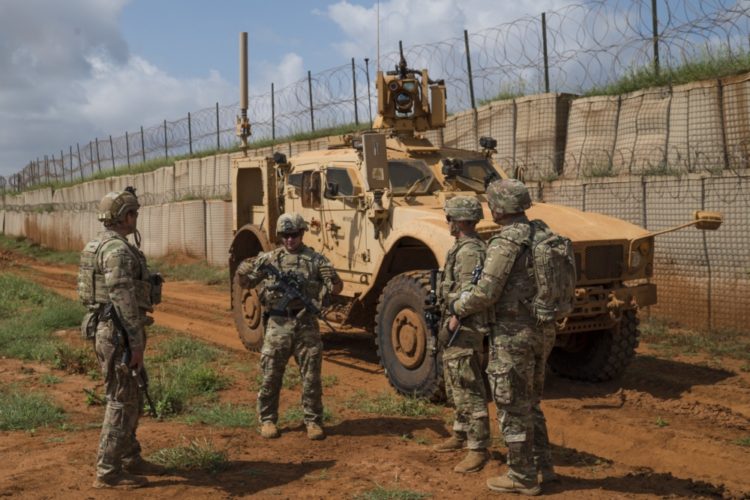A coordinated U.S.-Somali airstrike killed five al-Shabaab members in the area of Saaxa Weyne in Somalia, on Thursday according to the U.S. Africa Command (AFRICOM). The airstrike targeted and took out leaders of the terrorist group.
The command said that no civilians were injured or killed as a result of the operation.
Chief of the Somali Armed Forces General Odowa Yusuf Rageh said that eight top al-Shabaab leaders were killed in the airstrike, including the group’s local area commander, Mukhtar Nurow.
There has been no comment yet from the leadership of al-Shabaab.
“This strike targeted known al-Shabaab leaders who facilitated finance, weapons, fighters, and explosives. One is suspected of being involved in a previous attack against U.S. and Somali forces,” said U.S. Air Force Maj. Gen. Dagvin Anderson, Joint Task Force – Quartz commander. Anderson is also the commander of the Special Operations Command Africa (SOCAFRICA).
“Our continued disruption of al-Shabaab through persistent strikes shows our ongoing commitment to our partners,” Anderson added.
Joint Task Force – Quartz (JTF – Quartz) conducts operations to support U.S. Africa Command and international efforts that promote a peaceful and stable Somalia, according to its website. Violent extremist organizations, like al-Shabaab, present long-term threats to the U.S. and the region.
The terrorist group, which has been active since 2006, has pledged allegiance to al-Qaeda. Although based in Somalia, it is rumored that the membership of al-Shabaab is now heavily staffed with foreigners, including many at the leadership level. Thus the formerly nationalist organization has morphed into an international Islamist terrorist group. It has heavily recruited from the Muslim communities of the United States.
Just six days ago, AFRICOM in collaboration with Somali forces, had launched two airstrikes against al-Shabaab compounds in the vicinity of Qunyo Barrow. Assessments conducted after the missions indicated that the strikes had killed three al-Shabaab members and wounded another. The strikes had destroyed six al-Shabaab compound buildings and damaged one.
AFRICOM had videotaped that airstrike and shared it publicly.
In December, President Trump had ordered the withdrawal of about 700 troops from Somalia. Nevertheless, those troops won’t be completely removed from the theater; rather, most of them are being shifted to other bases in east Africa, mainly Djibouti. That shift isn’t expected to be complete before the Biden administration assumes power.
Already have an account? Sign In
Two ways to continue to read this article.
Subscribe
$1.99
every 4 weeks
- Unlimited access to all articles
- Support independent journalism
- Ad-free reading experience
Subscribe Now
Recurring Monthly. Cancel Anytime.










COMMENTS